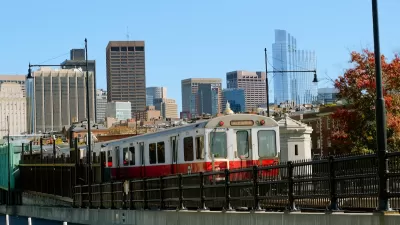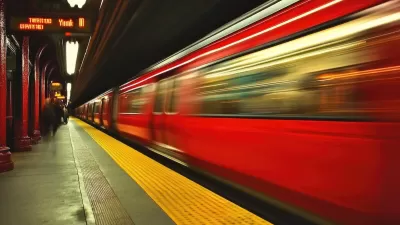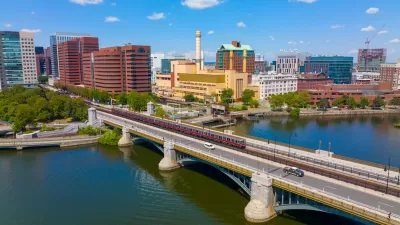Boston commuters report frustrations with a lack of parking at stations along the system—so much so that they sometimes abandon hope of finding a spot or catching a train.
"The struggle to find parking [at MBTA stations] is discouraging some commuters from using public transit," according to an article by Nicole Dunga.
Dunga shares the statistics at the center of the problem: "As of late January, the T owned nearly 49,600 parking spots across the state, compared to the nearly 1.3 million rides it provides on a typical weekday. While it is difficult to know exactly how many parking spaces are needed by commuters, it is clear to some of them that the demand outpaces supply at several stations."
Despite the addition of three new parking structures at stations in the system, parking is still scarce throughout the system and one station, Quincy Center, had to permanently shut its parking garage in 2012 because of structural damage.
Dunga also quotes UCLA Professor Donald Shoup to explain the potential impacts of parking shortages on a transit system. According to Shoup, "[it's] terrible to have a full parking lot determine the success of a transit system and the value of using transit."
Similar parking shortages have been reported at suburban stations of the BART system in the San Francisco Bay Area. A one dollar fee for parking was recently implemented at some stations that had been free since the system opened in 1972.
FULL STORY: Parking struggle discouraging some from using MBTA

Trump Administration Could Effectively End Housing Voucher Program
Federal officials are eyeing major cuts to the Section 8 program that helps millions of low-income households pay rent.

Planetizen Federal Action Tracker
A weekly monitor of how Trump’s orders and actions are impacting planners and planning in America.

Ken Jennings Launches Transit Web Series
The Jeopardy champ wants you to ride public transit.

Milwaukee Road to Get Complete Streets Upgrades
The city will reduce vehicle lanes and build a protected multi-use trail including bioswales and other water retention features on its ‘secret highway.’

Tackling Soil Contamination With Nature-Based Solutions
Los Angeles County residents and experts are turning to nature-based methods like bioremediation to address long-standing and fire-exacerbated soil contamination without resorting to costly and disruptive removal.

Rebuilding Smarter: How LA County Is Guiding Fire-Ravaged Communities Toward Resilience
Los Angeles County is leading a coordinated effort to help fire-impacted communities rebuild with resilience by providing recovery resources, promoting fire-wise design, and aligning reconstruction with broader sustainability and climate goals.
Urban Design for Planners 1: Software Tools
This six-course series explores essential urban design concepts using open source software and equips planners with the tools they need to participate fully in the urban design process.
Planning for Universal Design
Learn the tools for implementing Universal Design in planning regulations.
Ada County Highway District
Clanton & Associates, Inc.
Jessamine County Fiscal Court
Institute for Housing and Urban Development Studies (IHS)
City of Grandview
Harvard GSD Executive Education
Toledo-Lucas County Plan Commissions
Salt Lake City
NYU Wagner Graduate School of Public Service





























